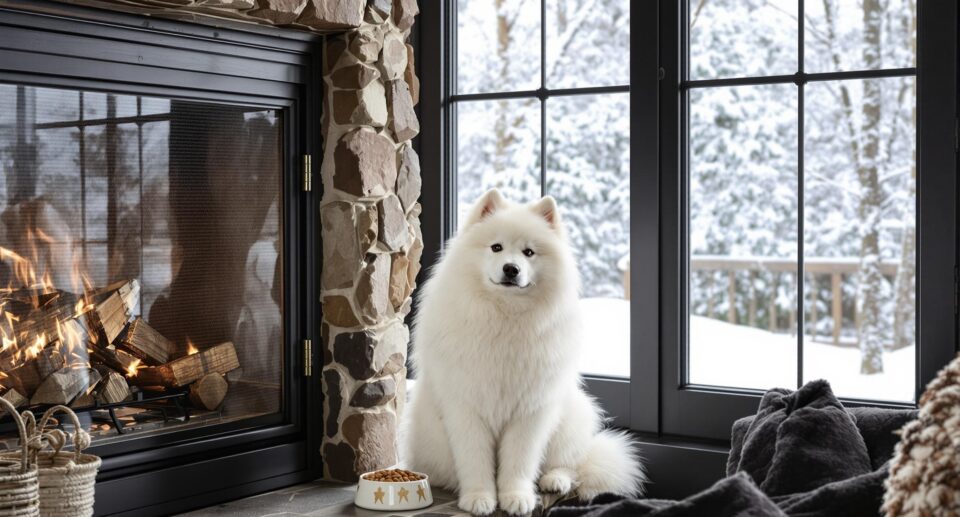
As the cold weather sets in, many pet parents notice their dog begging for food or scrounging around for snacks between meals. It’s not your imagination: many dogs really do get hungrier in the winter.
It’s not just the aroma of our holiday meals and snowy day stews that pique their appetite. Seasonal changes in your dog’s hormones and metabolism prompt them to want to eat more. Learn why dogs get hungrier in the winter and what that could mean for their cold weather diet.
Why Do Dogs Get Hungrier in the Winter?
While our modern dogs do not have to worry about surviving the winter, their seasonal changes in appetite and metabolism come from traits they’ve inherited from their wild ancestors. In the past, these traits could prepare them for freezing temperatures and unavailability of food and other resources in the winter.
Winter brings shorter days with fewer hours of sunlight. Less exposure to sunlight cues your dog’s body to produce more hormones that control appetite and food-seeking behaviors.
Exposure to cold weather can also mean the body burns more calories to generate its own heat. Depending on how much time your dog spends outside, they may burn up to twice as many calories as they do in warmer weather.
So, your dog is instinctively feeling hungrier in the winter to prepare for food scarcity and make up for calories burned to stay warm. But do they actually need more calories? It depends.
Should I Feed My Dog More in the Winter?
Not all dogs actually need more calories in the winter, even though they feel hungrier.
While the wintertime does cause an increase an appetite, it also activates the “thrifty gene” in many. The “thrifty gene” describes the phenomenon in which the body’s energy metabolism slows down, and increases storage of brown body fat, the kind that helps retain body heat. If your dog is not at risk for becoming underweight, giving in to their winter cravings could cause unhealthy weight gain.
Your dog should go to the vet at least once a year for their annual wellness exam, during which they will be weighed. You can also calculate out how many calories your dog needs per day. Your dog may still act hungry even if they are already eating the correct amount of calories to maintain or achieve a healthy weight.
You can quell an overactive appetite without adding extra pounds by feeding a diet that promotes satiety. Protein and fiber help curb appetite, and they can be added in the form of healthy treats and toppers. For dogs that are overweight or prone to weight gain, a weight management dog food can help.
What Else Could Cause Increased Appetite?
Changes in appetite could also point to a health issue unrelated to seasonal changes. Parasites, cancer, diabetes, and hormonal imbalances are a few possible reasons you might notice an increase in appetite. While your hungry dog is not necessarily suffering from an undiagnosed illness, you should see your veterinarian for a check-up to rule out any underlying issues.





